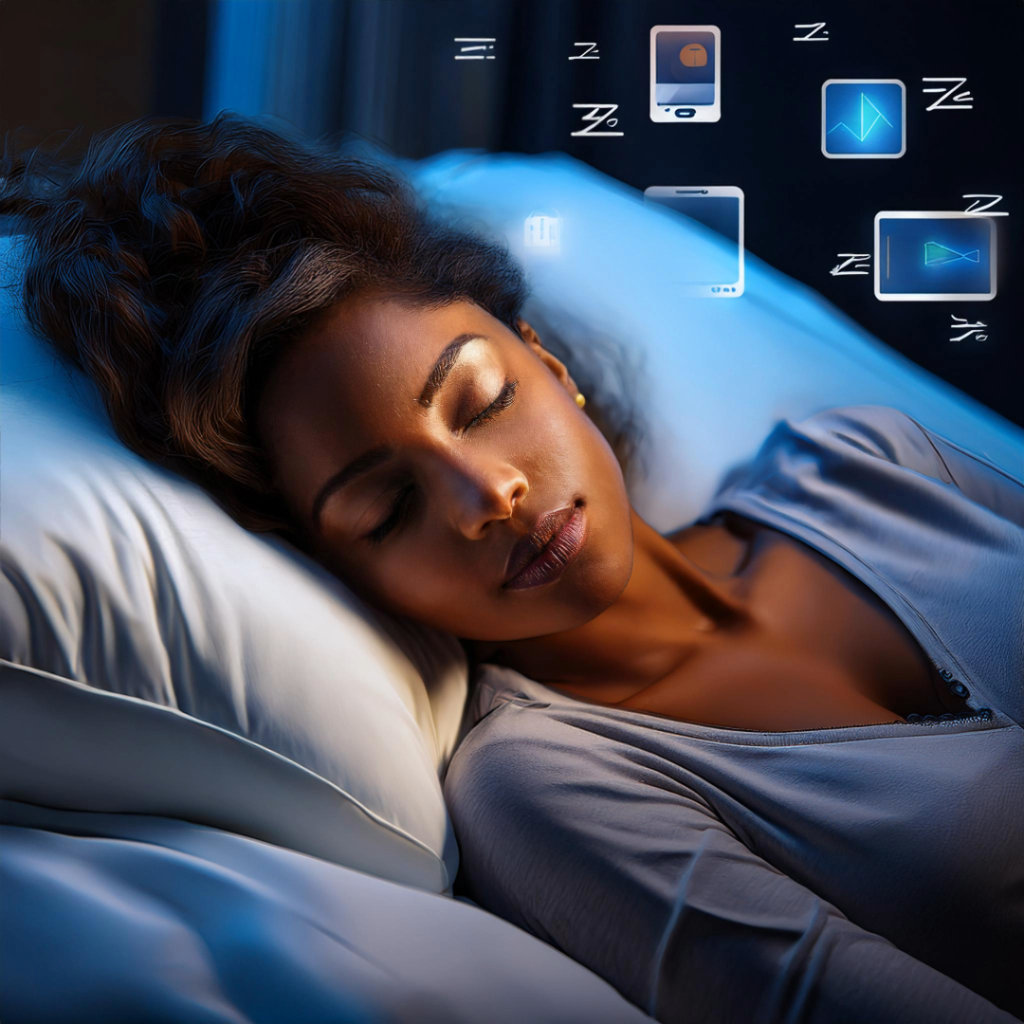How to Use Sleep Apps to Track and Improve Your Sleep Quality
In today’s fast-paced world, achieving a good night’s sleep is often easier said than done. Whether it’s stress, erratic schedules, or unhealthy habits, many of us struggle to get the restorative rest we need. Fortunately, technology is stepping in to help. Sleep apps are becoming a popular tool for tracking and improving sleep quality, and they offer an accessible way to take control of your nightly rest. At Restolex, we believe that quality sleep is foundational to overall well-being, and sleep apps can be a powerful ally in achieving this.

What Are Sleep Apps?
Sleep apps are mobile applications designed to monitor, analyze, and improve your sleep habits. These apps typically use your smartphone’s sensors to track movement, sounds, and sometimes even heart rate while you sleep. Some also offer additional features like guided meditation, relaxation exercises, and personalized sleep recommendations.
Whether you’re struggling with insomnia or simply want to optimize your rest, a good sleep app can give you insights into your sleep patterns and help you identify areas that need improvement.
Key Features of Sleep Apps
Most sleep apps offer a combination of the following features:
Sleep Tracking
The primary function of sleep apps is to track your sleep. They use your phone’s accelerometer (motion sensor) to detect your movements during sleep and provide data on how much time you spend in different sleep stages, like light, deep, or REM sleep.
Smart Alarms
Some apps feature smart alarms, which wake you up at the optimal time within a specified window. By monitoring your sleep cycles, these alarms try to wake you up during light sleep, helping you feel more refreshed and less groggy.
Sleep Score and Analytics
Sleep apps often generate a sleep score based on the quality and duration of your rest. They offer detailed analytics showing when you fell asleep, when you were restless, and how long you stayed in each sleep phase. This data can help you identify patterns or issues affecting your sleep.
Guided Meditation and Relaxation
Many sleep apps include guided meditation or breathing exercises to help you unwind before bed. These techniques can promote relaxation, reduce stress, and make it easier to fall asleep.
Sleep Goals and Recommendations
Some apps offer personalized sleep goals based on your lifestyle, age, and daily routine. Over time, the app can make recommendations on how to improve your sleep, such as adjusting your bedtime or creating a consistent pre-sleep routine.
How to Use Sleep Apps to Improve Your Sleep Quality
Here’s a step-by-step guide on how to get the most out of sleep apps:
1. Choose the Right App for You
There are a variety of sleep apps available, and finding the right one depends on your needs. Some of the most popular options include:
- Sleep Cycle – Known for its smart alarm feature, Sleep Cycle helps you wake up during light sleep to feel refreshed.
- Pzizz – Offers soothing sounds and guided sleep meditations designed to help you fall asleep faster and stay asleep longer.
- Pillow – Provides detailed sleep tracking, including heart rate analysis, and syncs with Apple’s Health app.
- Calm – While primarily a meditation app, Calm also includes sleep stories and breathing exercises that help promote restful sleep.
2. Set It Up Before Bed
Once you’ve chosen your app, set it up before going to bed. Place your smartphone near your bed, either on your mattress or nightstand, as most apps use the phone’s sensors to track movement.
3. Review Your Sleep Data
In the morning, review the data provided by the app. Look for patterns in your sleep cycle, such as restless periods, how long it took to fall asleep, and how much time you spent in deep sleep. Many apps will provide insights on areas where you can improve, such as reducing screen time before bed or setting a consistent bedtime.
4. Use the Smart Alarm Feature
If your app includes a smart alarm, use it! Waking up during light sleep can make a significant difference in how rested and alert you feel throughout the day.
5. Follow the App’s Recommendations
Take the app’s advice seriously. Whether it’s improving your sleep environment, reducing caffeine intake, or doing a pre-bedtime relaxation exercise, these small adjustments can have a big impact on your sleep quality.
Sleep Apps and Your Mattress: A Perfect Pairing
While sleep apps can provide valuable insights and suggestions, the foundation of a good night’s sleep always comes back to having a comfortable, supportive mattress. The right mattress, like those offered by Restolex, can enhance your sleep experience and complement the data-driven improvements recommended by your sleep app.
At Restolex, we offer a range of mattresses designed for optimal comfort and support. Whether you prefer the natural responsiveness of latex or the contouring support of memory foam, our mattresses are crafted to align with your body and provide a peaceful night’s rest. Pairing a high-quality Restolex mattress with insights from your sleep app can take your sleep to the next level.
Conclusion
Sleep apps are a powerful tool for anyone looking to improve their sleep quality. With features like sleep tracking, smart alarms, and guided relaxation, these apps offer practical solutions for better rest. When combined with the comfort and support of a Restolex mattress, you’re well on your way to achieving the restorative sleep you need to thrive.
Ready to enhance your sleep experience? Explore Restolex’s range of mattresses today and start your journey to better sleep!
Newsletter Sign Up
Join our community to receive exclusive updates, sleep tips, and special offers directly in your inbox. Stay informed and be the first to know about our latest products and promotions.

Contact Us
- 9/1, Ashokapuram, Industrial Suburb, Yeshwanthpur, Bengaluru-560022, India
-
care@restolex.com
Orders@restolex.com
Support@restolex.com -
+91-8750054466
+91-8123018558
